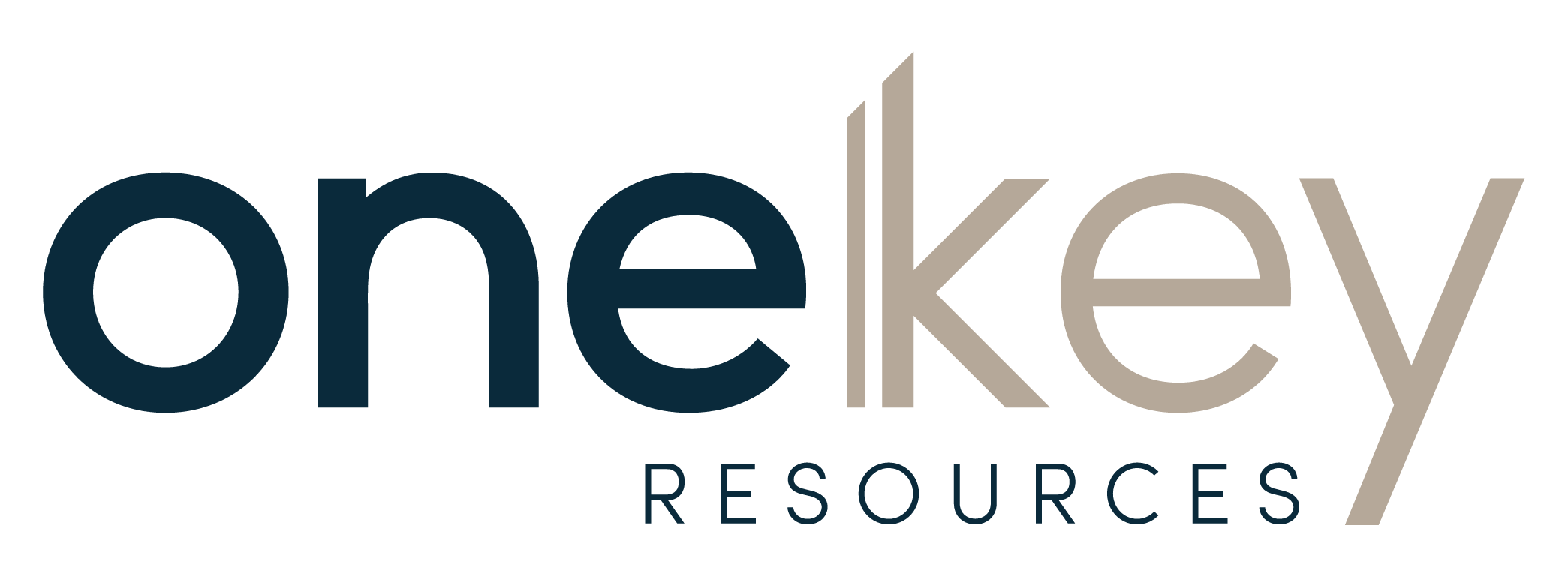1. Background and Purpose
One Key is committed to providing those involved with our organization a safe environment to raise breaches of internal rules or policy, or disclosable conduct relating to the organization. All organisations face the risk of things going wrong at times, or of unknowingly harbouring illegal or unethical conduct. A culture of openness and accountability is essential in order to prevent such situations occurring and to address them if they occur.
The aims of this Policy are:
a) to provide you with an understanding of what can be reported under the Policy;
b) explain how to speak up by reporting concerns about wrongdoing;
c) outline what protections a person who reports wrongdoing will receive;
d) outline One Key’s processes for dealing with reports of wrongdoing; and
e) to create a culture within the company that encourages employees to speak up and raise breaches of internal rules or policy, or disclosable conduct relating to the company.
2. Who may make a request?
The following individuals may make a report:
a) a current or former employee, officer or contractor;
b) a current or former supplier of services or goods to One Key Group (whether paid or unpaid) including their employees;
c) a relative, dependent or spouse of any of the above individuals; or
d) a lawyer on behalf of a discloser in one of the above categories.
3. What to report
Examples of wrongdoing which should be reported under this policy may include, but are not limited to:
a) a breach of laws or regulations;
b) criminal activity including theft;
c) serious breach of One Key Group’s Policies;
d) offering or accepting a bribe;
e) dishonest or unethical behaviour;
f) conflicts of interest;
g) anti-competitive behaviour;
h) financial fraud or mismanagement including in relation to One Key Group’s tax affairs;
i) falsifying financial or corporate reporting;
j) unauthorised use of One Key Group’s confidential information;
k) improper use of Personal Information;
l) improper use of One Key Group’s physical or intellectual property;
m) conduct endangering health and safety or causing damage to the environment; and
n) deliberate concealment of any of the above.
There is an expectation that anyone reporting a wrongdoing has reasonable grounds to suspect the information they are disclosing is true, but there will be no penalty if the information turns out to be incorrect.
Those reporting are expected to provide the information upon which their suspicion is based but are not required to have all the details or have conducted their own investigation.
4. Out of scope – complaints and grievances
Personal work-related grievances are not within the scope of this Policy and will be addressed through the applicable grievance resolution process. In those cases, please speak to your Manager in the first instance. Personal work-related grievances relate to an employee’s current or former employment and tend to have implications for them personally. Examples include:
a) an interpersonal conflict between the employee and another employee;
b) a concern about the behaviour of an employee;
c) a decision relating to an employee’s engagement, transfer or promotion;
d) an employee’s terms and conditions of employment;
e) matters relating to an employee’s performance or discipline related decisions; or
f) a decision relating to the termination of employment.
5. Who can disclosures be made to?
You should raise any concerns you may have via the One Key Whistleblowing portal accessible on the One Key website (https://onekeyresources.com.au/).
However, if you feel it is more appropriate, or you prefer not to raise it via the Whistleblowing portal, for any reason, you should contact the below individual:
a) Meg Giles, People and Performance Manager (megg@onekeyresources.com.au)
Although it is strongly recommended in the first instance to utilise the Whistleblowing portal or to contact the individual referenced above, it is important to note that under the Corporations Act, a whistleblower may also raise the matter with an “officer” or “senior manager” of the company. These are defined in the Corporations Act as “a director, or a senior manager in the company who makes, or participates in making, decisions that affect the whole, or a substantial part, of the business of the company, or who has the capacity to affect significantly the company’s financial standing.”
Those not wanting to reveal their identity can make an anonymous report. However, providing the whistleblower’s name when reporting wrongdoing will make it easier for One Key to investigate the concern raised. For example, the context in which wrongdoing was observed is likely to be useful information. Employees and others who report wrongdoing are protected by One Key maintaining confidentiality of the reports and the identity of the whistleblower.
Where no name is provided, One Key will assess the disclosure in the same way as if identity had been revealed, and any investigation will be conducted as best as possible in the circumstances. However, an investigation might not be possible unless sufficient information is provided. Employees and stakeholders disclosing wrongdoing will be protected and the investigation will be conducted in accordance with the principles of fairness and natural justice.
6. Protecting a whistleblowers identity
When reporting wrongdoing, the reporter’s identity and any information that One Key Group has as a result of the report that is likely to lead to identification, will only be disclosed if:
a) the person reporting gives consent for One Key Group to disclose that information;
b) One Key considers such disclosure should be made to:
i. Australian Securities & Investments Commission (ASIC), the Australian Federal Police or (for tax – related reports) the Commissioner of Taxation;
ii. a Commonwealth authority or a State or Territory authority for the purpose of assisting the authority perform its functions or duties;
iii. a lawyer for legal advice or representation in relation to whistleblower laws; or
c) in the case of information likely to identify the person reporting, it is reasonably necessary to disclose the information for the purposes of an investigation, and all reasonable steps are taken to prevent someone from discovering the reporter’s identity.
7. Specific protections & detrimental conduct (prohibited)
One Key is committed to ensuring that whistleblowers are not subject to detrimental treatment as a result of raising genuinely held concerns in good faith. Detrimental treatment includes dismissal, disciplinary action, threats or other unfavourable treatment connected with raising a concern. One Key strictly prohibits all forms of detrimental conduct against whistleblowers and against people who are involved in an investigation of a disclosure in response to their involvement in that investigation.
One Key will take all reasonable steps to protect a whistleblower from detrimental conduct and will take action it considers appropriate where such conduct is identified.
Whistleblowers are afforded protections at law if a “protected disclosure” is made, including that:
a) the discloser is not subject to any civil, criminal or administrative liability for making the disclosure (other than for making a false disclosure);
b) no contractual or other remedy may be enforced or exercised against the discloser the basis of the disclosure; and
c) in some limited circumstances (e.g. if the disclosure has been made to a regulator such as ASIC), the information provided may not be admissible in evidence against a discloser in criminal proceedings or in proceedings for the imposition of a penalty, other than proceedings in respect of the falsity of the information.
Except as provided in paragraph (c) above, the protections under Australian law do not grant immunity for any misconduct a discloser has engaged in that is revealed in their disclosure.
8. Investigations
Whistleblower disclosures made under this Policy will be documented and investigated promptly.
One Key Group takes all reports of potential wrongdoing seriously. All reports will be assessed an d, based on the nature and circumstances of the disclosure, a decision made as to whether an investigation is required. For example, reports of potential wrongdoing of a minor nature that can be resolved informally will typically not require the same level of response as disclosures involving a large-scale and complex investigation.
Any investigation will be conducted in a timely, fair and objective manner, and independent from any persons to whom the report relates. Investigations will generally be overseen by the People and Performance Manager. Other people, including employees or external advisers, may also be asked to assist or run the investigation. Where possible, the person reporting the wrongdoing will be informed how One Key Group is responding to their report, including whether an investigation will be conducted.
Unless there are confidentiality or other reasons not to do so, employees who are the subject of a report of wrongdoing will be informed of the matters raised in the report at an appropriate time, and will be given a chance to respond to any allegations made against them. They will also be advised of the outcome of any investigation.
9. Responsibility for Policy Compliance and Review
The Board of Directors of the One Key Group is responsible for the overall administration of this Policy and will monitor and will review on an ongoing basis the Policy’s suitability and effectiveness.
This policy is available on the website of One Key Group (https://www.onekeyresources.com.au/).
This Policy does not form part of any employee’s contract of employment, and it may be amended by One Key at any time.
Document Number: OKR-LEG-POL.1.002.2
Review Date: Sep 24


